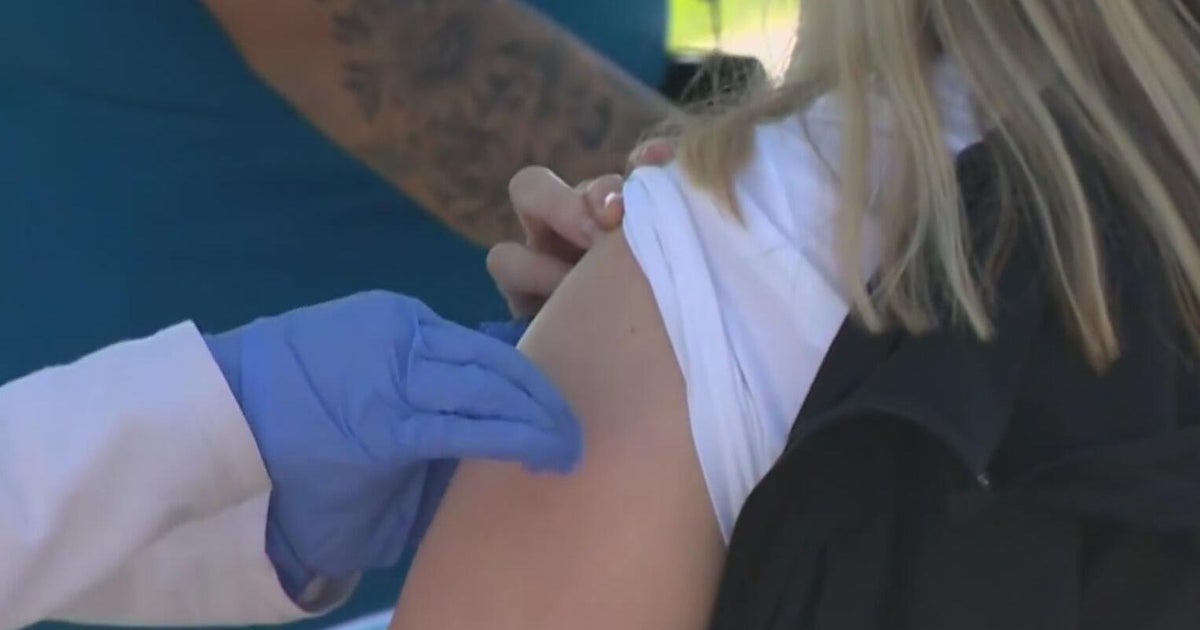Sexist data and a nationalist case for globalism: What surprised Bill and Melinda Gates in 2018
In their 11th annual letter, Bill and Melinda Gates are reflecting on the things that they didn't see coming in 2018, from one continent bucking the trend on aging to the realization that data can be sexist.
Since the Gates Foundation was formed in 2000 by the Microsoft co-founder and his wife it has paid out more than $45 billion in grants, supporting work in more than 130 countries, addressing issues like vaccine delivery, family planning, and empowering people to improve their communities.
Bill and Melinda Gates joined "CBS This Morning" to discuss some of the things that surprised them in 2018 and how those surprises are informing their philanthropic priorities and initiatives in 2019.
Data is sexist
When they first got into philanthropy, the couple wanted to learn more about the data behind their investments to ensure their work was creating the greatest impact. What they found was that a lot of the research they craved simply didn't exist. For example, how much time do girls spend on household chores compared to boys? Or how much money do mothers in developing countries earn for their households?
"Data, while we think it's objective, it's actually sexist. We don't actually collect that much data about women around the world and so we don't know how to make great investments on behalf of women. We highlighted that issue in the last three years and are working with our partners to collect great data," Melinda said.
Africa is the youngest continent
While the global median age is on the rise, Africa is staying young, with a median age of just 18. Bill explains that almost half the kids in the world will be born in Africa by the end of the century, which means we need to invest in those kids now.
"It's a very young continent and the question of whether those kids grow up with decent health and decent education, will determine whether there's a lot of innovation and they're stable and participating in the world economy or if it's a source of great instability and pandemics. So, investments we make now to partner with Africa to help them out, I think, can make a big difference," he said.
There's a nationalist case for globalism
The ideas of nationalism and globalism may seem antithetical to one another, but the Gateses contend there is a nationalist case to be made for globalist initiatives. Melinda argues that investing in people's health and education means they'll be more likely to participate in their own economy instead of fleeing for opportunities elsewhere.
"We know that when you invest in people's health and they start out healthy and they go on to get a great education where they live, they'll grow up and thrive and they'll participate in their own economy … But conversely, if you don't, they don't thrive and you get more instability in the world, less security — and disease, we know it crosses borders. We saw it with Ebola. So we need to be making those investments so people can thrive where they are," Melinda said.
Bill noted that some of the strategies they employ in Africa could also be useful in the U.S.
"Well, the U.S. has, by far, the world's most expensive health care system and there are ways that we can get better outcomes and be more efficient. Where we're working in Africa, the total resources are like 1 percent per person of what they are here in the U.S. And by focusing on vaccination, using primary health care workers that don't have to be doctors, it's amazing what can be done. So, that idea of task-shifting, focusing on preventative disease, that could work even in the U.S."
What you can learn about processing your anger
With the U.S. leading the world in numbers of incarcerated people, Bill and Melinda Gates decided to spend time in a Georgia prison to better understand inmates' stories a couple years ago. Bill also attended a counseling session with young black men in a Chicago neighborhood with a lot of crime and gang activity. The program, called "Becoming a Man," focused on strategies for navigating dangerous situations.
"It was a discussion about anger. When was the last time you were angry? How do you channel that anger? Are there times you don't do that well? I thought it was brilliant and I was amazed how much that counseling session was going to help put those boys on the right track."
African-American women are more likely to have premature births and we don't know why
The last time Melinda was angry was when she was in Africa and saw a baby needlessly die because the mother hadn't made it to the health clinic in time to give birth.
"That made me angry 'cause that was a life we could save," she said.
But even in the U.S., African-American women are three times more likely to deliver their baby pre-term. Maternal mortality rates in the U.S. overall are on the rise, but particularly for African-American women, and we don't know why.
"Is it the health system? It it the way they're received there? Is it the stress in their community? Is it how we treat them? Is it genetic, we talk about selenium in here. We just don't know the answer but we need to focus on that both in the U.S. and around the world. Around the world, 10 percent of babies are born prematurely."



